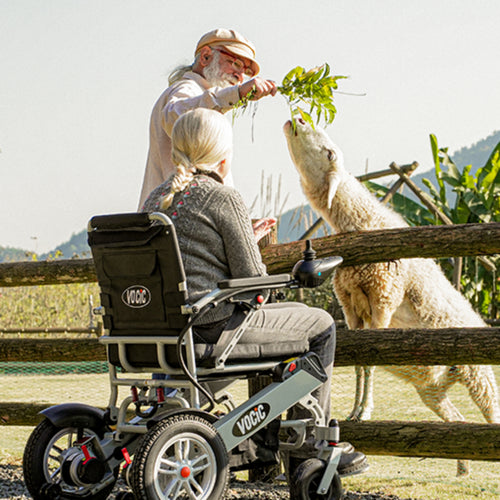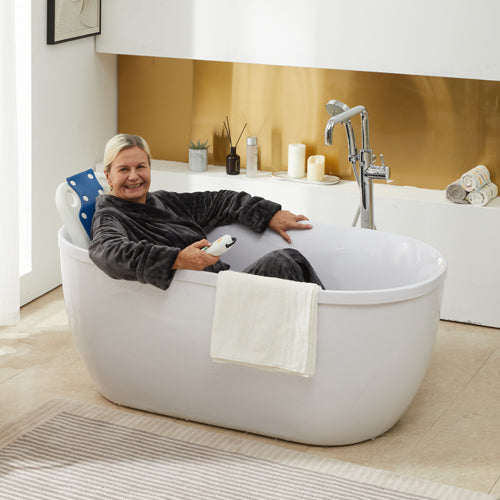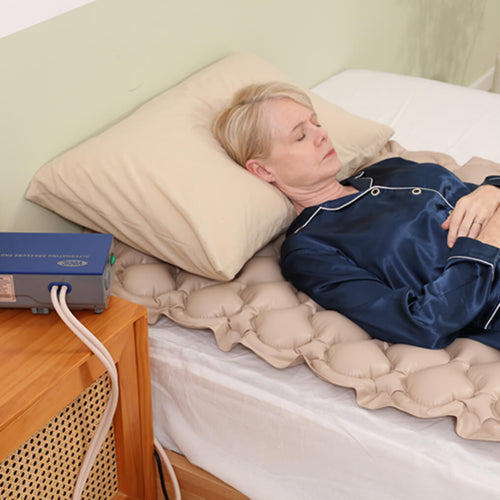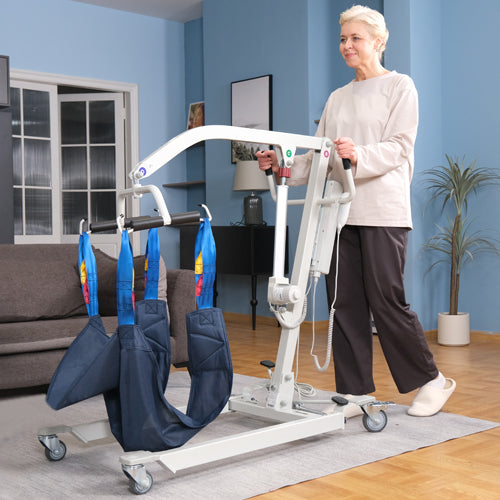Summer travel brings endless opportunities and adventures, especially for seniors who want to explore new destinations. However, for those who rely on mobility aids, choosing the right mobility aid can improve their travel experience. This guide provides important tips for travel-friendly, safe, comfortable, and mobile mobility aids so seniors can enjoy summer travel with ease.
What Are Some Summer Tips for Seniors?
When seniors want to travel during the summer and plan to bring a mobility aid, here are some important tips to consider for safety and convenience:
-
Choose the right walker: Make sure your walker is suitable for travel. Lightweight, foldable walkers are generally ideal because they are easier to transport and can be quickly stored in a car, bus, or plane. Check with airlines, train companies, etc. before you travel to see if you can carry your walker.
-
Check accessibility: Before you leave for your trip, research whether the location you plan to visit has accessibility facilities. Find information about wheelchair or walker accessibility to make sure ramps, lifts, or other facilities are available.
-
Practice folding and unfolding: If your walker is foldable, it is recommended that seniors practice folding and unfolding it first. This will make it easier for seniors to operate during travel, especially in busy airports or stations.
-
Carry necessary spare parts: Carry spare parts or tools needed to make small adjustments or repairs to your walker. Such as screws, small screwdrivers or replacement covers for the walker's legs.
-
Use a walker bag: Attach a small bag or pouch to your walker to easily access personal items such as water, snacks, medication, and travel documents. This frees up both hands to safely operate the walker.
-
Make a plan for security screening: At the airport, be prepared for security screening. Learn how to use your walker to get through security efficiently. You may be asked to place your folding walker on the conveyor belt for x-ray screening.
-
Request help in advance: When booking your travel, request any special help you may need in advance. Most airlines and train companies offer assistance to passengers who use mobility aids. It is recommended to check with the airline or train company in advance.
-
Stay hydrated and protected: If you are traveling in the summer, bring water and wear appropriate clothing to protect you from the sun. Staying hydrated and avoiding sunburn is important to maintain your energy and health during your travels.
-
Take regular breaks: If you are traveling long distances, take regular breaks. This can relieve fatigue and keep you comfortable.
-
Emergency contact information: Always have emergency contact information ready. It is important to have contact numbers for family members or medical services in the area you are visiting if you need help.
These precautions can help older adults who use mobility aids enjoy a safe, worry-free journey. For seniors seeking quality mobility aids that ensure safety and comfort while traveling, consider exploring the options available at VOCIC. They offer a wide range of products tailored to enhance mobility for seniors. To learn more about their offerings, visit VOCIC. Before making a purchase, please consult with them to confirm if the products are suitable for travel.

What Mobility Aids Can Older Adults Take with Them When Traveling?
When traveling, seniors can consider various types of mobility aids based on their needs and the nature of their trip. Families can also choose the right mobility aid for their seniors. Here are some common options:
-
Canes: Canes are generally suitable for people who need minor balance assistance. Canes are portable and easy to maneuver, making them ideal for travel.
-
Walkers: Walkers are more stable than canes and are suitable for people who need a lot of support. Foldable walkers are particularly useful for travel because they can be easily stored in a car or checked during a flight.
-
Rollators: Rollators are similar to walkers but have wheels for smoother movement on the ground and often come with built-in seats for resting on long walks or while waiting. Like walkers, many walkers are foldable for easy transportation.
-
Wheelchairs: Wheelchairs are essential for people who are unable to walk long distances or stand for long periods. Travel wheelchairs are lightweight and designed to fold compactly for storage.
-
Mobility scooters: Mobility scooters are best for long trips and provide independence, but require more space for transportation. They are ideal for cruise ships and resorts but can be cumbersome to manage in cramped airport terminals.
When traveling with a mobility aid, it is advisable to check the airline's policy regarding the carriage and handling of mobility aids. Most airlines offer assistance to passengers traveling with mobility aids, but advance notice is required to make the necessary arrangements. It is advisable to contact the airline directly before traveling to discuss your needs and confirm that your mobility aid meets their requirements. This can ensure that your travel experience is smoother, allowing you to enjoy your journey in comfort and ease.

What Are the Benefits of a Mobility Aid When Traveling?
Bringing a mobility aid when traveling can improve the mobility experience for seniors or people with limited mobility. Here are some of the benefits of mobility aid:
-
Increased Independence: Mobility aids like wheelchairs, scooters, and walkers enable individuals to move around more freely and independently. This independence can enhance their travel experience by allowing them to explore and engage with new environments at their own pace.
-
Safety and Security: Mobility aids provide stability and support, reducing the risk of falls and injuries while traveling. This is particularly important in unfamiliar locations where the terrain may be uneven or unpredictable.
-
Comfort and Endurance: Travel can be physically demanding, especially in large airports or tourist sites that require extensive walking. Mobility aids like rollators and portable seats offer the opportunity for rest and relief, enabling users to conserve energy and enjoy activities for longer periods without discomfort.
-
Access: Many modern mobility aids are designed to be compact and portable, making them easier to transport and use in different travel settings, including airplanes, trains, and cars. This accessibility allows individuals to take their aid wherever they go, ensuring they have the support they need.
-
Enhanced Social Interaction: With mobility aids, individuals are more likely to engage in social activities and interactions during their travels because they can navigate social settings more easily and comfortably.
-
Compliance with ADA Standards: For travels within the United States, and increasingly in other parts of the world, public transport and accommodations are required to be accessible to those with mobility aids, ensuring that users of such aids have equal access to travel experiences.
With these benefits of mobility aids, the right mobility aid can be selected based on specific travel needs, the nature of the destination, and the physical condition of the elderly. It is recommended to plan and communicate specific needs with the travel provider to ensure that the journey is as smooth and enjoyable as possible.
Factors to Consider When Traveling with a Mobility Aid
When traveling with a mobility aid, there are several key factors to consider to ensure the device's practicality and the traveler's comfort. Here are some areas to keep in mind:
-
Mobility Aid Compatibility: Ensure the aid is appropriate for the type of travel and destination. For instance, lightweight and collapsible devices are preferable for air travel.
-
Transport Requirements: Consider how the mobility aid will be transported, particularly in terms of airline policies for stowing and handling such equipment, including battery-powered devices.
-
Destination Accessibility: Research the accessibility features of your destination, including hotels, tourist attractions, and public transport.
-
Legal and Regulatory Issues: Be aware of any legal or regulatory considerations that apply to mobility aids in your destination, including battery regulations on flights.
-
Backup Plans and Resources: Have contingency plans for potential issues, such as access to repair services or rental options at your destination.
By considering these factors, senior travelers can enhance their travel experience and ensure their entire journey is safe, comfortable, and enjoyable.
Conclusion
When traveling with a mobility aid, older adults should choose the right mobility aid based on their needs and the details of their trip. Factors to consider include the compatibility of the mobility aid with transportation (such as the airline), the accessibility of the destination, and any legal or regulatory requirements. Proper planning can improve the safety and convenience of travel for older adults who use mobility aids.









